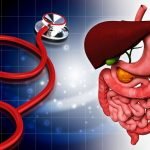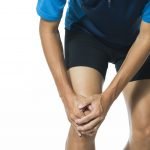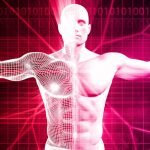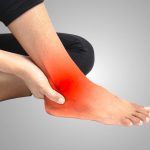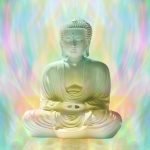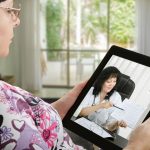Role of Face Masks in Preventing COVID-19
Node Smith, ND
A study by a team of researchers led by a Texas A&M University professor found that not wearing a face mask dramatically increases a person’s chances of being infected by the COVID-19 virus.
Not wearing a face mask dramatically increases a person’s chances of being infected by the COVID-19 virus
Renyi Zhang, Texas A&M Distinguished Professor of Atmospheric Sciences and the Harold J. Haynes Chair in the College of Geosciences, and colleagues from the University of Texas, the University of California-San Diego and the California Institute of Technology have had their work published in the current issue of PNAS (Proceedings of the National Academy of Sciences).
The chances of COVID-19 infection and how easily the virus is passed from person to person examined
The team examined the chances of COVID-19 infection and how the virus is easily passed from person to person. From trends and mitigation procedures in China, Italy and New York City, the researchers found that using a face mask reduced the number of infections by more than 78,000 in Italy from April 6-May 9 and by over 66,000 in New York City from April 17-May 9.
Results show that airborne transmission via respiratory aerosols presents the dominant route for the spread of COVID-19
“Our results clearly show that airborne transmission via respiratory aerosols represents the dominant route for the spread of COVID-19,” Zhang said. “By analyzing the pandemic trends without face-covering using the statistical method and by projecting the trend, we calculated that over 66,000 infections were prevented by using a face mask in little over a month in New York City. We conclude that wearing a face mask in public corresponds to the most effective means to prevent inter-human transmission.
“This inexpensive practice, in conjunction with social distancing and other procedures, is the most likely opportunity to stop the COVID-19 pandemic. Our work also highlights that sound science is essential in decision-making for the current and future public health pandemics.”
One of the paper’s co-authors, Mario Molina, is a professor at the University of California-San Diego and a co-recipient of the 1995 Nobel Prize in Chemistry for his role in understanding the threat to the Earth’s ozone layer of human-made halocarbon gases.
“Our study establishes very clearly that using a face mask is not only useful to prevent infected coughing droplets from reaching uninfected persons, but is also crucial for these uninfected persons to avoid breathing the minute atmospheric particles (aerosols) that infected people emit when talking and that can remain in the atmosphere tens of minutes and can travel tens of feet,” Molina said.
Many people in China have worn face masks for years, mainly because of the bad air quality of the country
Zhang said that many people in China have worn face masks for years, mainly because of the bad air quality of the country.
“So people there are sort of used to this,” he said. “Mandated face-covering helped China in containing the COVID-19 outbreak.”
Zhang said the results should send a clear message to people worldwide — wearing a face mask is essential in fighting the virus.
“Our work suggests that the failure in containing the propagation of COVID-19 pandemic worldwide is largely attributed to the unrecognized importance of airborne virus transmission,” he said. “Social-distancing and washing our hands must continue, but that’s not sufficient enough protection. Wearing a face mask as well as practicing good hand hygiene and social distancing will greatly reduce the chances of anyone contracting the COVID-19 virus.”
The study was funded by the Robert A. Welch Foundation.
1. Renyi Zhang, Yixin Li, Annie L. Zhang, Yuan Wang, Mario J. Molina. Identifying airborne transmission as the dominant route for the spread of COVID-19. Proceedings of the National Academy of Sciences, 2020; 202009637 DOI: 10.1073/pnas.2009637117

Node Smith, ND, is a naturopathic physician in Humboldt, Saskatchewan and associate editor and continuing education director for NDNR. His mission is serving relationships that support the process of transformation, and that ultimately lead to healthier people, businesses and communities. His primary therapeutic tools include counselling, homeopathy, diet and the use of cold water combined with exercise. Node considers health to be a reflection of the relationships a person or a business has with themselves, with God and with those around them. In order to cure disease and to heal, these relationships must be specifically considered. Node has worked intimately with many groups and organizations within the naturopathic profession, and helped found the non-profit, Association for Naturopathic Revitalization (ANR), which works to promote and facilitate experiential education in vitalism.




